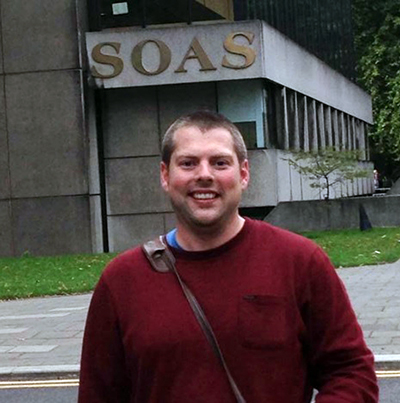
Equipped with state-of-the-art laboratories that provide students with hands-on experiences to bridge theory and practice

The study will enhance the understanding of open, distance and e-learning as it intersects decolonisation, peace education, curriculum transformation, distance education and open educational resources, says Prof Ashley Gunter (Geography Department, College of Agriculture and Environmental Sciences). It will help African universities develop approaches appropriate for local African contexts.
The story: Four African universities will each be receiving a slice of £4 million from the UK's Arts and Humanities Research Council for peace education research, working out at around R4,5 million in Unisa’s case.
Comment: The study will enhance the understanding of open, distance and e-learning as it intersects decolonisation, peace education, curriculum transformation, distance education, and open educational resources, says Prof Ashley Gunter of the Geography Department.
What it matters: It will help African universities develop approaches appropriate for local African contexts.
Peace education in Africa is in urgent need of decolonisation and a massive £4 million grant from the United Kingdom’s Arts and Humanities Research Council (AHRC) is providing just the impetus needed. Four African universities will each be receiving a share of this funding for peace education research, working out at around R4,5 million in Unisa’s case.
Unisa’s participation is thanks to the efforts of Prof Ashley Gunter of the Geography Department, who is part of an international consortium that has been jointly awarded the AHRC’s £4 million grant which, based on current exchange rates, equates to over R76 million.
"Peace education typically comes from the West and this grant will help African universities develop approaches appropriate for local African contexts," says Gunter, who initiated and coordinated Unisa’s involvement in the consortium.
The group consists of four UK and four African universities. The UK partners are Open University UK as the lead institution, Lancaster University, Durham University and Liverpool Hope University. The African partners are Zimbabwe’s Midlands State University, Uganda’s Makerere University, the National Open University of Nigeria, and, of course, Unisa.
Apart from Gunter as the main investigator, the Unisa team consists of three other researchers from the College of Agriculture and Environmental Sciences, namely Dr Lorna Christie, Sabelo Tshabalala and Ruan Schoeman. As part of the grant, Gunter will be reaching out to other colleges and academics at Unisa to expand his research network.
While the Covid-19 crisis has delayed the start of the four-year Decolonising Peace Project, which was due to have commenced in April 2020, it was formally launched on 20 May during a virtual meeting for all the participants.
"We are anticipating that we will be fully operational going forward and will develop alternative methodologies to circumvent any pandemic-related problems," Gunter says.
The Unisa team will work as an integral part of an international AHRC research network. "This network will be the first large interdisciplinary international study of local meanings and mechanisms of peace, exploring how to embed these into peace education in the secondary and tertiary education sectors," he says.
"We will identify a 'proof of concept' project that will connect across the network, and compare and identify best practice that recognises and responds to complex conflict dynamics. The aim is to produce more effective and sustainable peace education curriculums that can support transitions from conflict to peace."
Over and above the main Unisa budget of R4,5 million over four years, the project has funding to commission five case studies in South Africa to broaden local peace building and strengthen teaching materials.
Four of these smaller projects will receive £30 000 each and the fifth will be funded to the tune of £100 000.
"These grants will be open to academics across South Africa and possibly beyond to Angola and Mozambique," says Gunter, adding that the call for expressions of interest will go out next year, 2021.
An international panel convened by the research team will decide on the recipients of these mini-grants, with input from the Decolonising Peace Education project partners.
"This is an opportunity to grow capacity and mentor Unisa and South African academics in bidding and managing grants," he says. "Our team will work with local academics to guide them through the process in a friendly and helpful environment."
Gunter has ample grant-bidding knowledge and experience to transfer to others. Two years ago, he was primary investigator of another international consortium that received R10 million in grant funding from the UK’s Newton Fund and Economic and Social Research Council, and South Africa’s National Research Foundation. He has also been awarded a number of smaller international grants, including one from the AHRC to conduct a pilot peace education project in 2019.
* By Clairwyn van der Merwe, Contract writer, Directorate of Research Support
Publish date: 2020-06-03 00:00:00.0